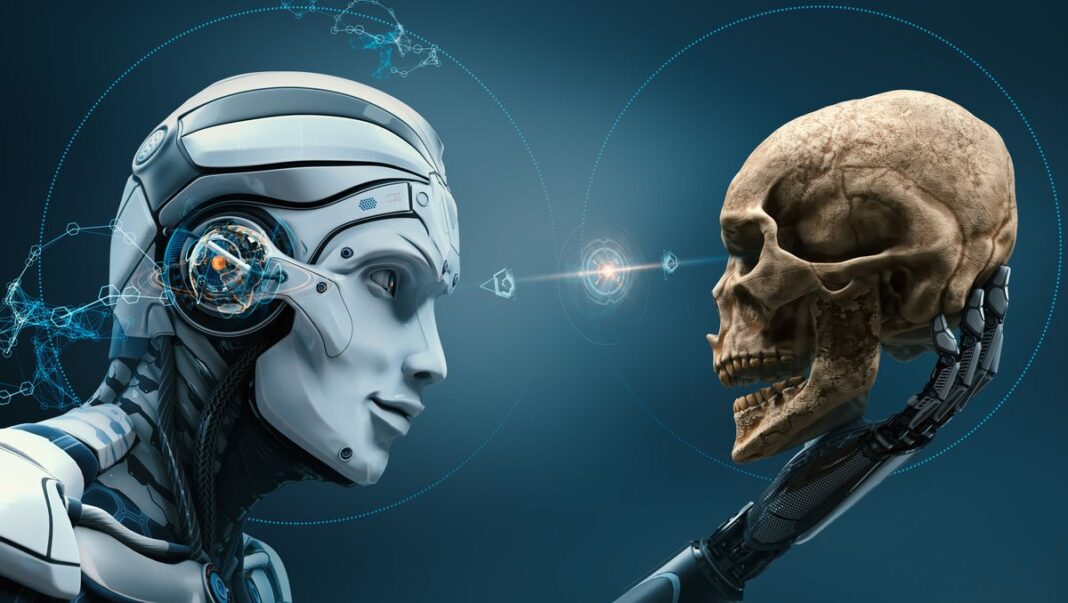A new AI model can mimic human personalities after a 2-hour chat, according to a recent research paper released by Stanford University and Google’s DeepMind. The study, titled Generative Agent Simulations of 1,000 People, showcased how an AI model was able to imitate human behavior with an impressive 85% accuracy after just a brief two-hour interview.
The research involved over a thousand participants who engaged in conversations with a 2D character, sharing details about their lives, beliefs, jobs, and families. Through this process, the AI was able to create digital replicas of these individuals, capturing their personalities and decision-making patterns.
The AI clones proved to be quite adept at mimicking their real-world counterparts, with an accuracy rate of 85% in answering questions from personality tests and surveys. While the AI’s decisions in economic games like the Prisoner’s Dilemma and the Dictator Game matched the participants only 60% of the time, it still outperformed random chance.
This groundbreaking technology has significant implications for various fields, including sociology, psychology, and economics. Researchers believe that AI simulations could revolutionize the study of human behavior, offering insights into how communities might react to different scenarios or how customers might respond to new products.
Despite the potential for misuse, the focus remains on harnessing this technology for research purposes. The ability of AI to replicate human behavior with such accuracy in a short period is both impressive and slightly eerie, highlighting the advancements in artificial intelligence.
As we delve deeper into the realm of AI, it raises questions about privacy, data security, and the ethical implications of creating digital replicas of individuals. While the technology holds great promise for advancing our understanding of human behavior, it also underscores the need for responsible and ethical use.
In conclusion, the AI model developed by Stanford and DeepMind represents a significant leap in the field of artificial intelligence, showcasing the potential to simulate human behavior with remarkable accuracy. As we navigate this new era of AI technology, it is essential to consider the implications and ensure that these advancements are used for the greater good.
—
Frequently Asked Questions
- How accurate is the AI model in mimicking human behavior?
- The AI model achieved an impressive 85% accuracy in simulating human behavior after just a 2-hour chat.
- What are the potential applications of this technology?
- The technology could be used in fields like sociology, psychology, and economics to study human behavior and decision-making.
- Are there concerns about privacy and data security with this technology?
- Yes, there are concerns about how this technology could access and use personal data, raising questions about privacy and security.
- How can AI simulations benefit research and studies?
- AI simulations can provide insights into how communities might react to different scenarios and how customers might respond to new products.
- What are the ethical considerations surrounding the creation of AI clones?
- The creation of AI clones raises ethical questions about consent, data privacy, and the boundaries of digital replication.
- Can this technology be misused by malicious actors?
- There is a potential for misuse by scammers and other malicious actors, highlighting the need for responsible use and regulation.
- How does this AI model compare to previous research in the field?
- This AI model represents a significant advancement in the field of artificial intelligence, showcasing the ability to mimic human behavior with high accuracy.
- What are the implications of AI clones for individuals’ identities?
- The creation of AI clones raises questions about how individuals’ identities are represented and used in digital simulations.
- How can society benefit from AI simulations of human behavior?
- AI simulations can provide valuable insights into collective human behavior, offering new perspectives on societal interactions and decision-making.
- What are the future prospects for this technology in research and development?
- The technology holds great promise for advancing research in various fields and could lead to new discoveries and applications in the future.
Tags: AI, human behavior, artificial intelligence, research, technology, sociology, psychology, ethics, decision-making
- The technology holds great promise for advancing research in various fields and could lead to new discoveries and applications in the future.

